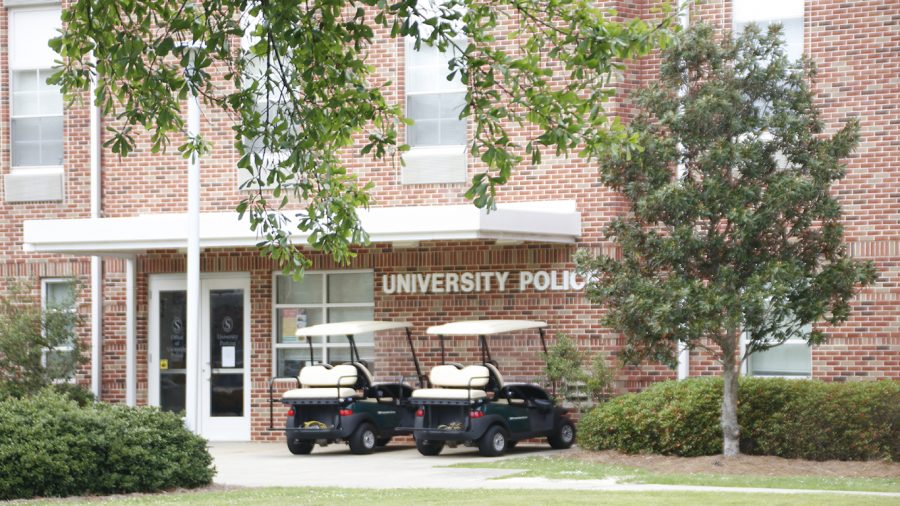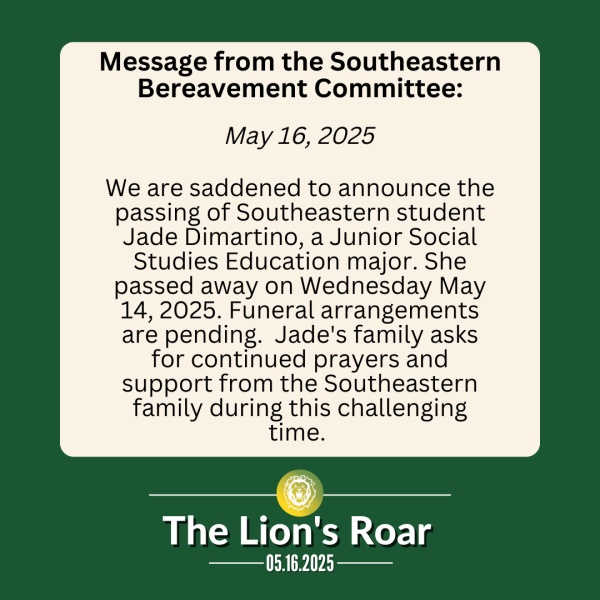New rights granted to the accused in cases of sexual assault on campuses
Prakriti Adhikari/The Lion’s Roar
Education Secretary Betsy DeVos announced new set of rules regarding sexual assault on campus that will allow the accused a right to live hearing and to cross examine accusers.
Education Secretary Betsy DeVos, announced a new set of rules regarding how campuses will handle cases of sexual assault, including new rights for those who are accused.
According to The Washington Post, the new policy “creates a judicial-like process in which the accused has the right to a live hearing and to cross-examine accusers.”
These new rules fall under Title IX, part of the Education Amendment of 1972, which prohibits discrimination on the basis of sex on college campuses.
Previously, the definition of sexual assault included any offense that could be determined as rape, fondling, incest or statutory rape. With DeVos’ new policy, the definition of sexual harassment has also been expanded to include stalking and dating violence.
According to the University Police Department’s 2019 Annual Security and Fire Safety Report, there were 11 reported cases of incidents that fit the definition of sexual assault on campus last year.
Gene Pregeant, Title IX coordinator, explained that the recent policy changes will narrow the range of cases that fall under Title IX.
“The following types of cases will fall within the jurisdiction of Title IX and therefore subject to the new regulations: An employee of the University (referred to in the regulations as Recipient) conditioning the provision of an aid, benefit or service on an individual’s participation in unwelcome sexual conduct (known under the law as quid pro quo harassment), unwelcome conduct determined by a reasonable person to be so severe, pervasive and objectively offensive that it effectively denies a person equal access to the University’s education program or activity, or Conduct that is defined by federal law as ‘Sexual assault,’ ‘Dating Violence,’ ‘Domestic Violence’ or ‘Stalking,’” stated Pregeant.
Pregeant mentioned that while Title IX does not handle other instances of sexual assault, students can still report cases that violate the univeristy’s policies.
“All other forms of sexual misconduct will not be handled as Title IX cases, but any such alleged conduct that violates the Student Code of Conduct can still be handled through the Office of Advocacy and Accountability, as can allegations of conduct that occur off campus that would otherwise be covered by Title IX,” said Pregeant.
One of the new rights for the accused is cross-examination. This allows for “the most effective way of ferreting out the truth of what happened in a situation in which students offer different recollections of the same event,” according to The Washington Post.
Pregeant elaborated on how the university will handle this process.
“The regulations do mandate live hearings with the opportunity for cross-examination,” stated Pregeant. “No one will be allowed to testify anonymously. The university has the discretion to hold hearings virtually, as we have occasionally done in the past. Southeastern has always used the ‘preponderance of the evidence’ standard in evaluation allegations of misconduct. It is our plan to continue doing so moving forward.”
With new rights granted to the accused, Pregeant expressed a concern for the number of students who decide to come forward concerning allegations of sexual assault.
“We are concerned about whether or not the new regulations might negatively impact a student coming forward to make a complaint, a concern that has been shared by many of our peers at other institutions,” commented Pregeant. “It is our hope through education and awareness that we can alleviate some of those concerns.”
Pregeant explained that he is working alongside other faculty members to ensure that the changes go into effect with as smooth a transition as possible.
“Dr. Gabe Willis and Curtis Meyers, as well as myself, are dedicating a great deal of time and resources through studying the new regulations, participating in webinars, and sharing information with our sister institutions in an effort to make these changes as seamlessly for our students as possible,” shared Pregeant.
The new regulations will become effective starting Aug. 14, 2020.
Your donation will support The Lion's Roar student journalists at Southeastern Louisiana University.
In addition, your contribution will allow us to cover our annual website hosting costs.
No gift is too small.

Maggie Tregre is an English education major from Baton Rouge, LA. She worked as a staff reporter and editor-in-training for The Lion's Roar from September...







Thomas K KARLI • Jun 17, 2020 at 2:39 pm
This is monstrous and completely ridiculous. “New rights for the accused” is a horrific miscarriage of justice that will lead to fear and abuse for a person already suffering from being raped or sexually assaulted. How can we countenance this?